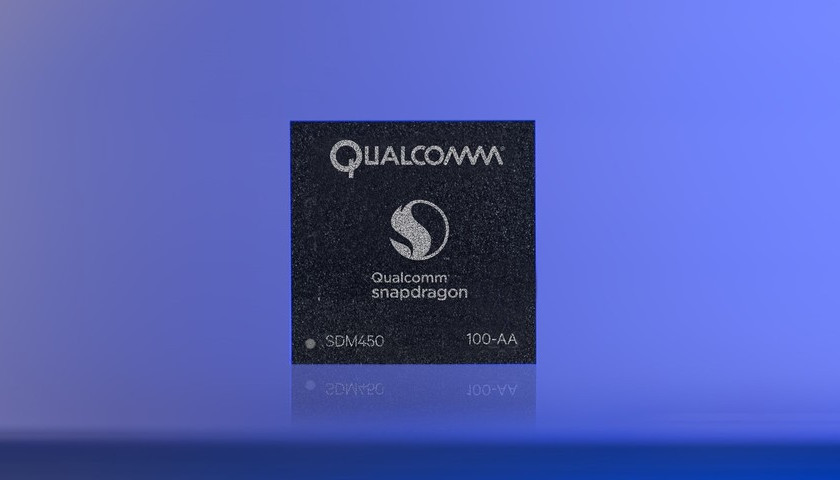Qualcomm continues to make strides in mobile technology innovation, this time introducing a new Snapdragon 400 series processor and a new Snapdragon Wear chip at Mobile World Congress Shanghai. As its top tier mobile processors continue to break new grounds, it is necessary for Qualcomm to play catch up with its mid range and entry level chips as well, which is precisely what it is doing.
The company has unveiled the all new Snapdragon 450 processor for smartphones. The Snapdragon 450 is a standard upgrade from the Snapdragon 435 processor in many aspects, but it now sports a 14nm process, down from the SD435’s 28nm fabrication. This makes the Snapdragon 435 the smallest entry level chipset by Qualcomm thus far. The smaller process also means that the SD450 is significantly more energy efficient compared to previous Snapdragon 400 series processors, allowing room to increase the core frequencies to 1.8 GHz.


The Snapdragon 450 also comes with the Adreno 606 GPU, featuring 25 percent better performance, including an image signal processor which now supports up to 21MP for rear cameras, or dual 13MP cameras with real time bokeh capabilities and Qualcomm Real Sight. The chipset now supports USB 3.0 data transfer speeds too.
Qualcomm has also launched a lower end Snapdragon Wear chip, known as the Snapdragon Wear 1200. The key point of this new chip is not its lesser performance, but its lower power consumption. For starters, it only sports one 1.3 GHz Cortex-A7. It features a low power and low speed CAT-M1 and CAT-NB1 LTE modem which is capable of sub par speeds, but sufficient enough for smartwatch use. It is likely that we will see more affordable Android Wear smartwatches in the future with the introduction of this new chipset.
Both the Snapdragon 450 and Snapdragon Wear 1200 are expected to make appearances underneath the hoods of respective devices and wearables some time in Q4 2017.

